There are seasons when I consume books with the voraciousness of a starved nomad, relying on them for sustenance and fortitude and approaching each new title with limitless fervor. And then, there are seasons like the one I am currently in: I’m reading because that’s what I do, I’m a reader; but I’m struggling to feel invested in what I’m reading or to enjoy the reading experience. I am pushing through it, and I know this ambivalence will not last forever. I’ll keep reading my merrily way along, trusting that the bookish love will return soon.
I am sure that my meh mood around reading this month factored into my opinions of some of these books, but there are some objectively good titles here and I hope you will give them a chance, or at least some consideration.
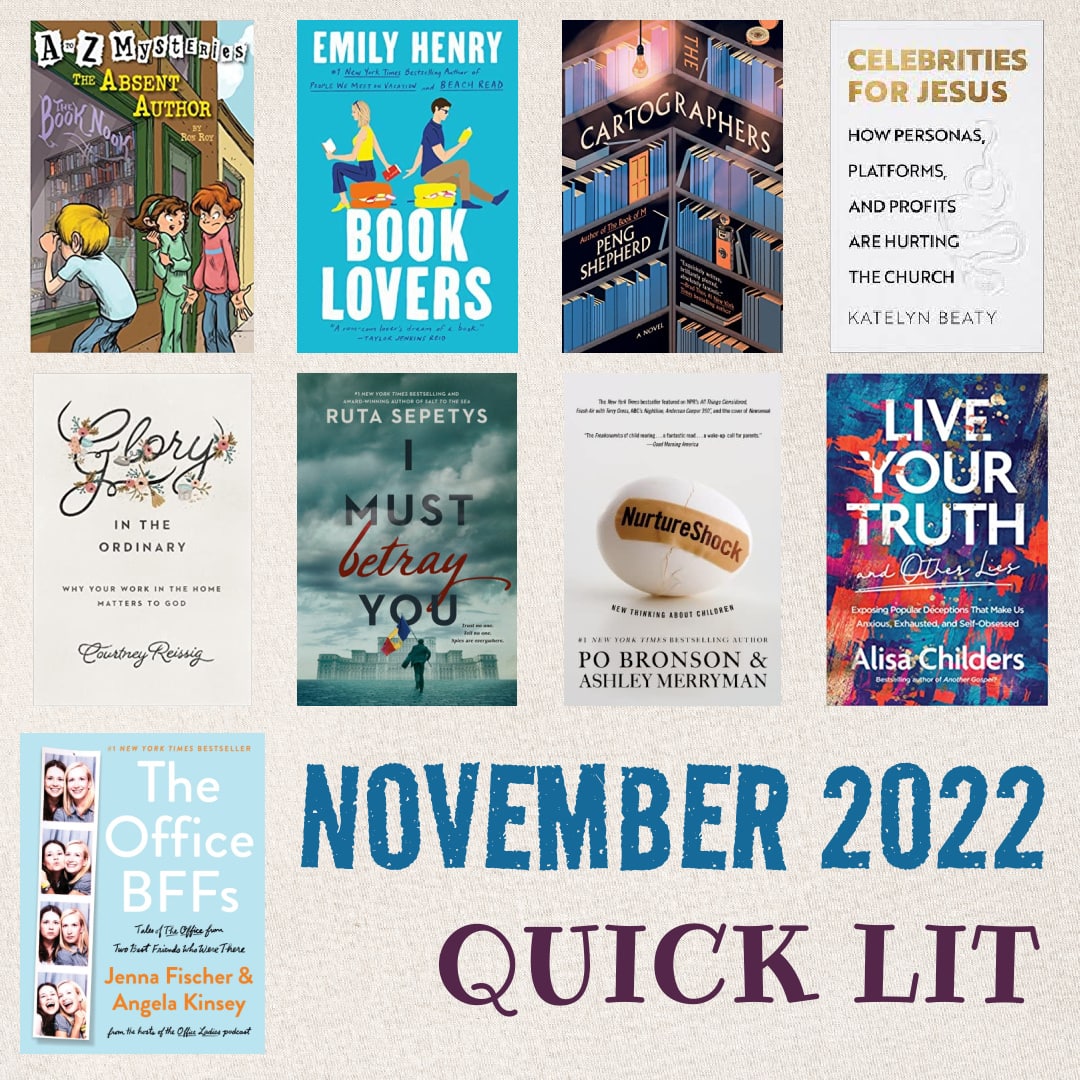
NONFICTION
Celebrities for Jesus: How Personas, Platforms, and Profits Are Hurting the Church, by Katelyn Beaty: The last several decades saw the rise of numerous celebrity pastors, and in the past few years we have all witnessed the public fall of far too many of them. These high-profile pastoral failings are leading many Christians to question a prevalent but little-discussed aspect of modern Christianity: the popularity and cult following of Christian leaders. Celebrity is not exclusive to the Christian world, far from it; it can be seen throughout culture and within nearly every demographic. But celebrity (defined as social power with proximity) is antithetical to the messages of humility and service that are upheld in Scripture. How, then, are we to justify the existence of famous Christian leaders?
In this aptly titled book, Christian book editor and cultural commentator Katelyn Beaty explores the ways that fame has shaped (and continues to shape) the American church and how many famous Christian leaders claiming to use their fame to spread the Gospel have ultimately caused great harm for both their parishioners and the entire Church body. After tracing the history of famous pastors, arriving at today’s mega-church celebrities, Beaty provides examples of big-name pastors who have abused their power (and subverted their message) and shows how the goals of chasing a platform and creating a persona have distracted pastors from their purpose and calling. She ends with an argument for obscure, ordinary Christianity that follows the example of our deeply humble Savior. She also explains why, despite being disappointed by so many high-profile Christians and by the misplaced loyalties of too many Christians, she remains loyal to Jesus and hopeful for the future of the Church.
This is an uncomfortable subject because it touches on the nature of evangelism and the purpose of churches and spirituality—some of the most important but also most challenging parts of Christianity. Though it frustrates me that a focus on Christianity’s present-day shortcomings distracts from the Gospel and its spread, I do think we as a global church body need to be addressing these issues and making some changes. I don’t love that the theme of this book ties in so neatly with present-day Cancel Culture, or that the tone is so accusatory of other believers—including some who I have no doubt are well-intentioned, even if their actions are flawed. The general vibe of the book feels like yet another socially acceptable teardown of Christianity specifically, and institutions more generally. The fact that the author herself is a Christian, and that she remains hopeful for the Church’s future, softens this message a bit and lends credibility to the book’s intent. Still, I don’t know how I feel about such public lambasting of fellow believers. Could these issues be addressed in a way that was a little less . . . salacious?
One of the most interesting chapters of the book addresses the world of Christian books and publishing. It felt strange to read arguments against this aspect of Christian culture IN a book that fits that niche. The entire section seemed a little hypocritical (though Beaty did her best to address the strangeness of her statements in this context). Still, it was eye-opening (and disheartening) to learn about the politics and shortcomings of Christian publishing.
Qualms aside, I appreciated the main message here that fame and faithfulness to Jesus do not go hand in hand. This was a valuable reminder to remain humble in my own faith walk, and not to become enamored with Christian leaders simply because of the personas they present. Despite the gossipy tone, there are some important takeaways here that are definitely worth our consideration. I just wish I knew how to better separate the good intentions of many Christian celebrities (and even the positive fruit of their fame) from their problematic platforms. When it comes to actually addressing this issue, this book sadly raises more questions than answers.
My Rating: 3.5 Stars (Rounded down to 3 Stars on Goodreads) // Book Format: Audiobook
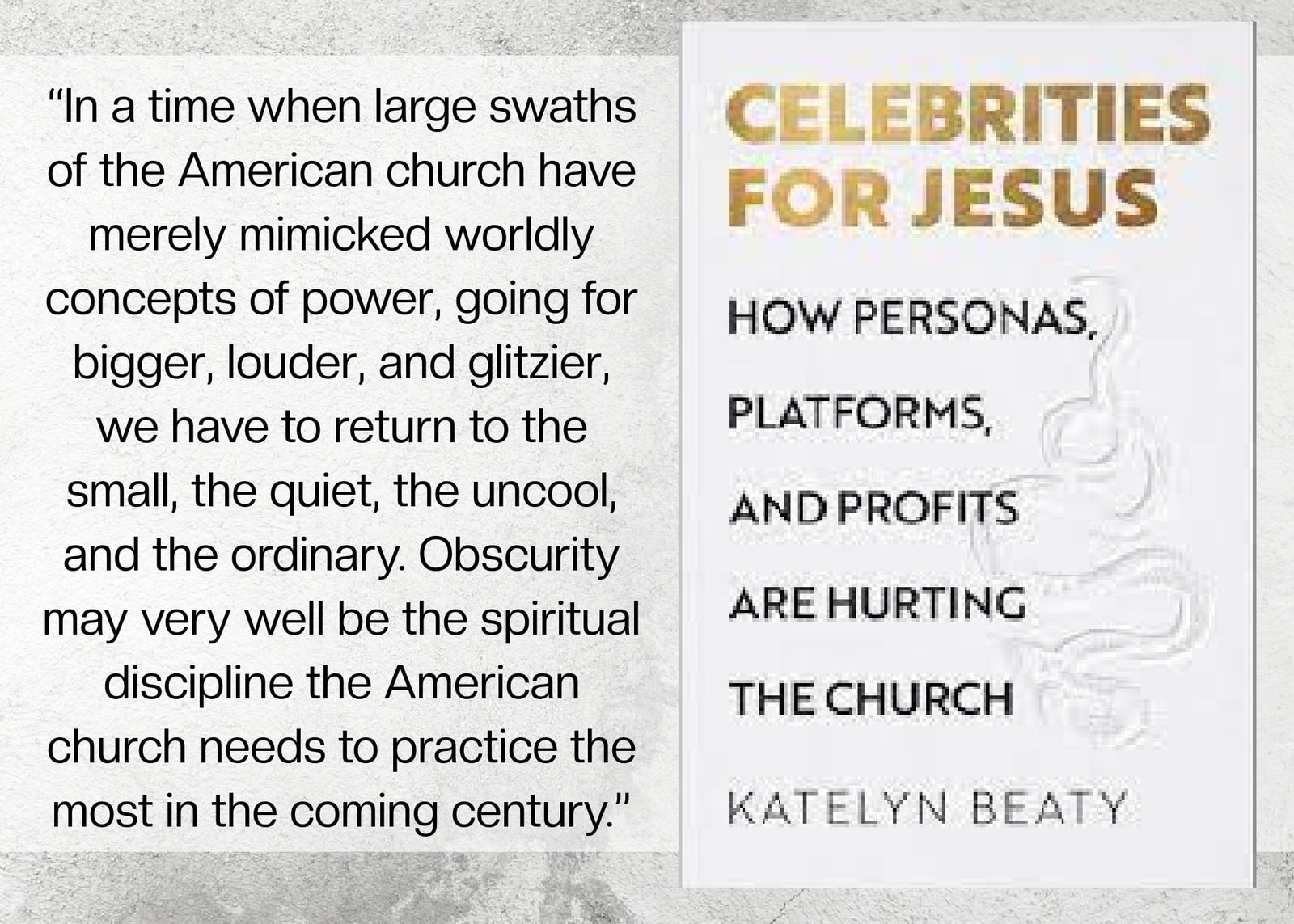
NurtureShock: New Thinking About Children, by Po Bronson and Ashley Merryman: As parents, we are inundated with advice, most of it backed by official sounding studies and touted by trained experts. The problem is that a lot of this advice contradicts itself and our own instincts. So what are we to do? And specifically, what have we been told that simply isn’t true? In NurtureShock (which is a read-alike for titles by Malcolm Gladwell, if Gladwell wrote parenting books), two science journalists unpack some of the biggest questions posed by modern parents, dispose of several myths, and offer unconventional solutions. Among topics covered are child aggression (how have we contributed to it despite societal efforts to put an end to bullying?); language development (which techniques work and which don’t); the problem with over-praising our kids; the importance of sleep and of having honest conversations with our kids about race; why teens rebel and siblings fight; and the value of teaching self-control.
This book was written more than a decade ago, so many of the ideas presented—though revolutionary at the time—are more broadly accepted today. (It would be interesting to read an updated version of this; which topics would be covered today, and how has the science and cultural climate changed?) Still, I had quite a few takeaways. I’m thinking differently about how I respond to my kids’ behavior (particularly lying, which I’ve learned MUST be addressed, even when it seems innocent) and navigate their sibling interactions (which will set them up for healthier interactions as adults). I’m also doubling down on bedtimes and paying more attention to how I respond to my children in conversation.
In addition to being informative, this is an engaging and eye-opening read. I liked the conversational tone mixed with detailed accounts of various studies, and I especially appreciated the ways that the authors highlighted the importance of distinguishing between child and adult psychology and behavior: we cannot assume that children will act or respond as adults would! I also liked the reminder that children and their behavior must be taken as a whole: solving one problem can have negative consequences in other areas, and all must be taken into consideration.
More than anything else, this book increased my wariness around parenting advice, even advice with studies to back it. The authors’ close examination of several studies revealed the degree to which these studies are less than definitive, with a wide margin for error and inconclusive results that can be skewed to fit alternative narratives (sometimes for completely benign reasons, but not always. . . .) I do wish this book offered more concrete solutions: in many instances we are shown strategies that don’t work without being given alternatives. If nothing else, though, this is a great conversation starter and reminder to second-guess everything we hear, see, or believe.
My Rating: 4 Stars // Book Format: Kindle
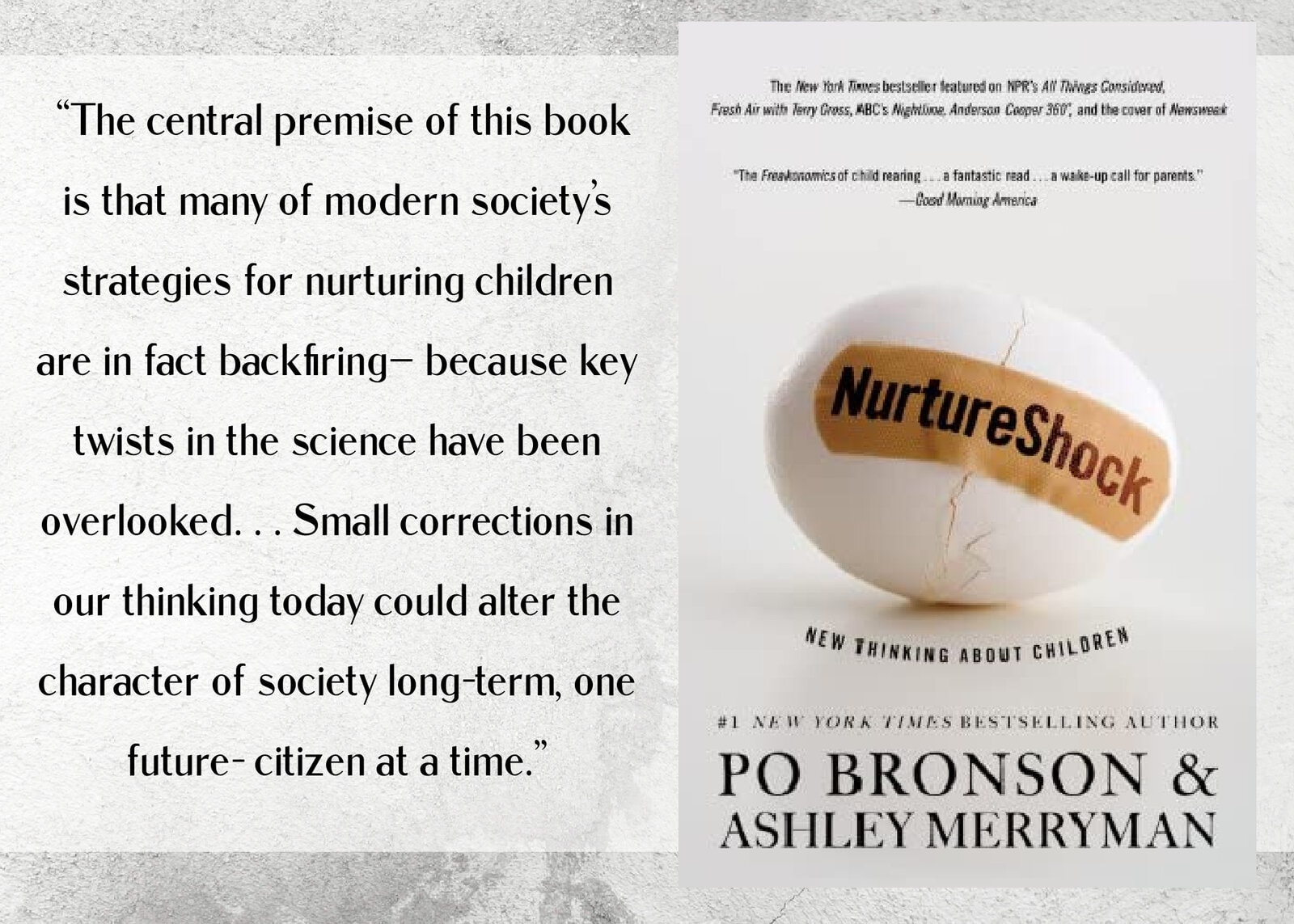
Live Your Truth and Other Lies: Exposing Popular Deceptions That Make Us Anxious, Exhausted, and Self-Obsessed, by Alisa Childers: I’ve been craving good ol’ fashioned truth speaking lately, but in a culture that seems to be straying further and further from the truth (as we get further and further from the Author of the Truth and His design for mankind), genuine truth tellers seem to be in short supply. Alisa Childers (whom you might know as a former member of Zoe girl) is a radiant light in the darkness, and after hearing her make her book tour rounds on several podcasts recently, I couldn’t press download on this audiobook fast enough.
Live Your Truth aligns beautifully with my own theological journey over the past couple of years, as I have started to identify lies perpetuated by culture and even the Church and begun my own exploration of which commonly held beliefs align with Scripture and which are of the enemy. This book identifies some of the more common mistruths, such as the false notions of moral relativism (“live your truth”) and mankind’s inherent goodness (“you are enough”), the importance of self care (“you should put yourself first”) and the evils of the patriarchy (“girl power is real power”). Many of these concepts are pervasive within culture, and they’ve have been addressed by other apologists; they are subjects I have thought through and recognize as false. But a number of the lies Childers examines are more insidious, and some are even lies I’ve fallen for myself, such as the assumptions that authenticity is everything; that I hold no obligations to other people; and that Christians are told never to judge.
Childers explains why these false messages hold so much appeal and highlights passages from contemporary bestsellers (by authors claiming to be Christians) that proclaim these deceptions; she then thoroughly debunks these lies, refuting them with solid Scriptures and pointing out their logical fallacy and lack of Biblical ground to stand on. While I was uncomfortable with Childers’ quickness to call out false teachers by name and quote their books verbatim, I see the necessity for such directness and specificity; many contemporary Christians are being discipled by these high-profile teachers and it’s important for us to understand that these teachers are misguided, and why. . . and while I personally might have been less pointed in my criticism, I can’t deny the impact of her specificity for my own reading, and I imagine it will be helpful for others too as we discern which influencers we need to be more wary around.
This book won’t be well received by many, who will resent its countercultural ideas and lack of feel-good mantras. But for those willing to reevaluate their world view and seeking idealogical alliance with God and His Truth as presented in the Bible, this book is chock full of principles to consider and embrace. With many of us floundering these days, an accurate (Biblical) worldview may seem like an unnecessary luxury, but I would argue that pursuing, embracing, and espousing Truth is one of the greatest things we can be doing with our lives.
Childers’ writing is concise and direct, with just enough personality and wit to keep the narrative moving but not so much storytelling that it overtakes the messages being taught. I love that the Lord is using a former musician with a meandering story of her own to speak up and speak out about Him and His Word.
My Rating: 4.5 Stars (Rounded up to 5 Stars on Goodreads) // Book Format: Audiobook
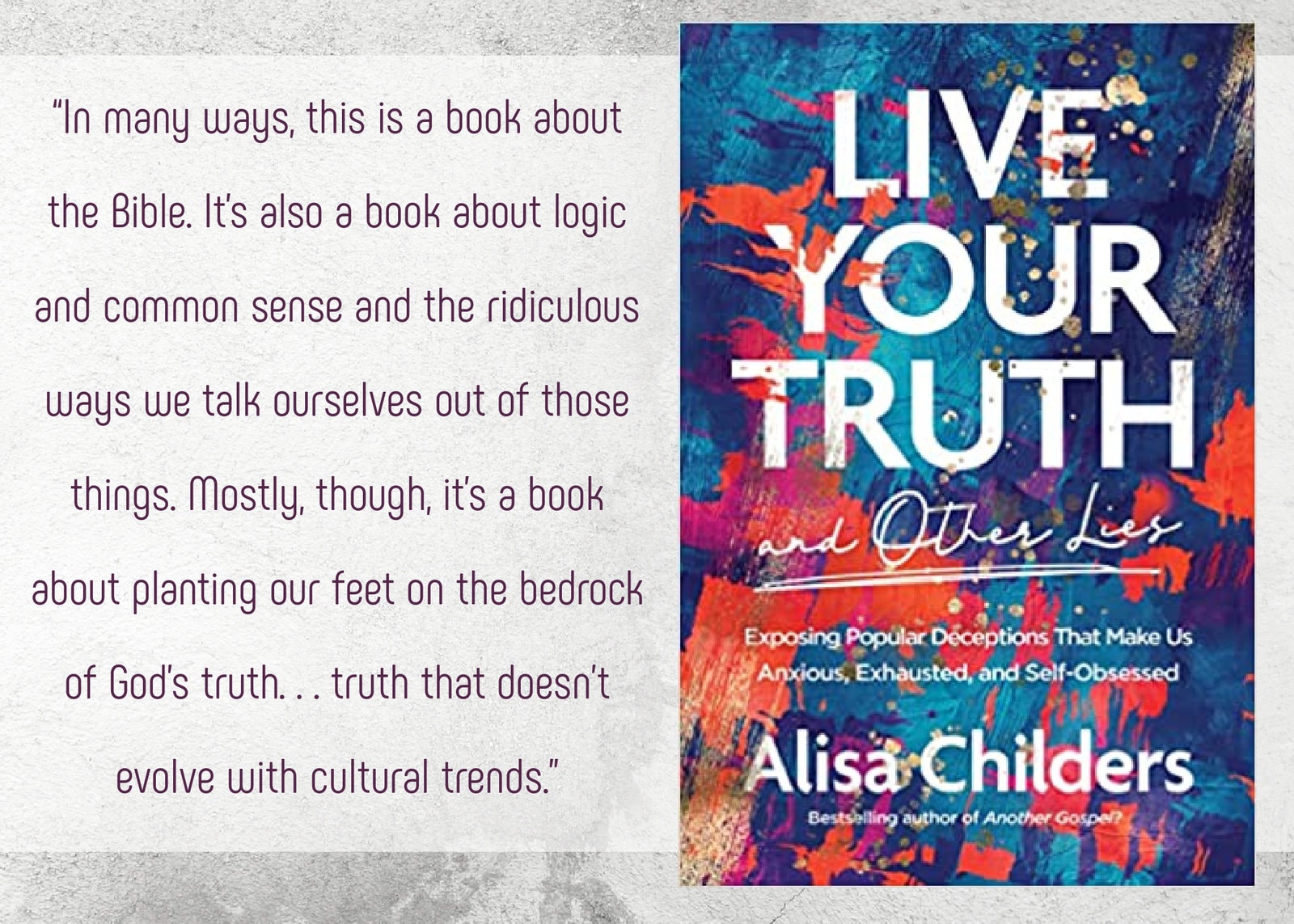
The Office BFFs: Tales of The Office from the Best Friends Who Were There, by Jenna Fischer and Angela Kinsey: As one of millions who call ourselves enormous fans of The Office, I was excited to read this insiders’ scoop from Jenna Fischer and Angela Kinsey, the real-life BFFs who play Pam and Angela on the show. It took ages for my library hold to come through, but it was definitely worth the wait. In the book Angela and Jenna take turns narrating their version of their friendship, their time on the show, and memories of the various cast members, key episodes and story arcs, and the way their personal lives (friendship, pregnancy, etc.) intersected with the fictional worlds of The Office. I listened to the audio, which includes some off-the-cuff chats between the ladies, a few cameos from other guest stars, and a hand full of audio clips of various other memories. I missed the pictures that I’m sure are included in the print form, but I think audio is definitely the way to go with this one.
This is not the first book I’ve read about The Office, but it didn’t feel too redundant thanks to the narrators/authors: I really loved the friendship dynamic that Jenna and Angela bring to the book, and even though many of the stories and memories are recaps from the Office Ladies podcast, I enjoyed reliving these moments with them and celebrating both the book and their friendship through their narration. I also appreciated the kindhearted tone of the book: the two ladies have nothing but generous words for all of their costars and other cast and crew members of The Office. The whole books is very positive and very uplifting, with no hint of drama. So refreshing!
My Rating: 4.25 Stars // Book Format: Audiobook
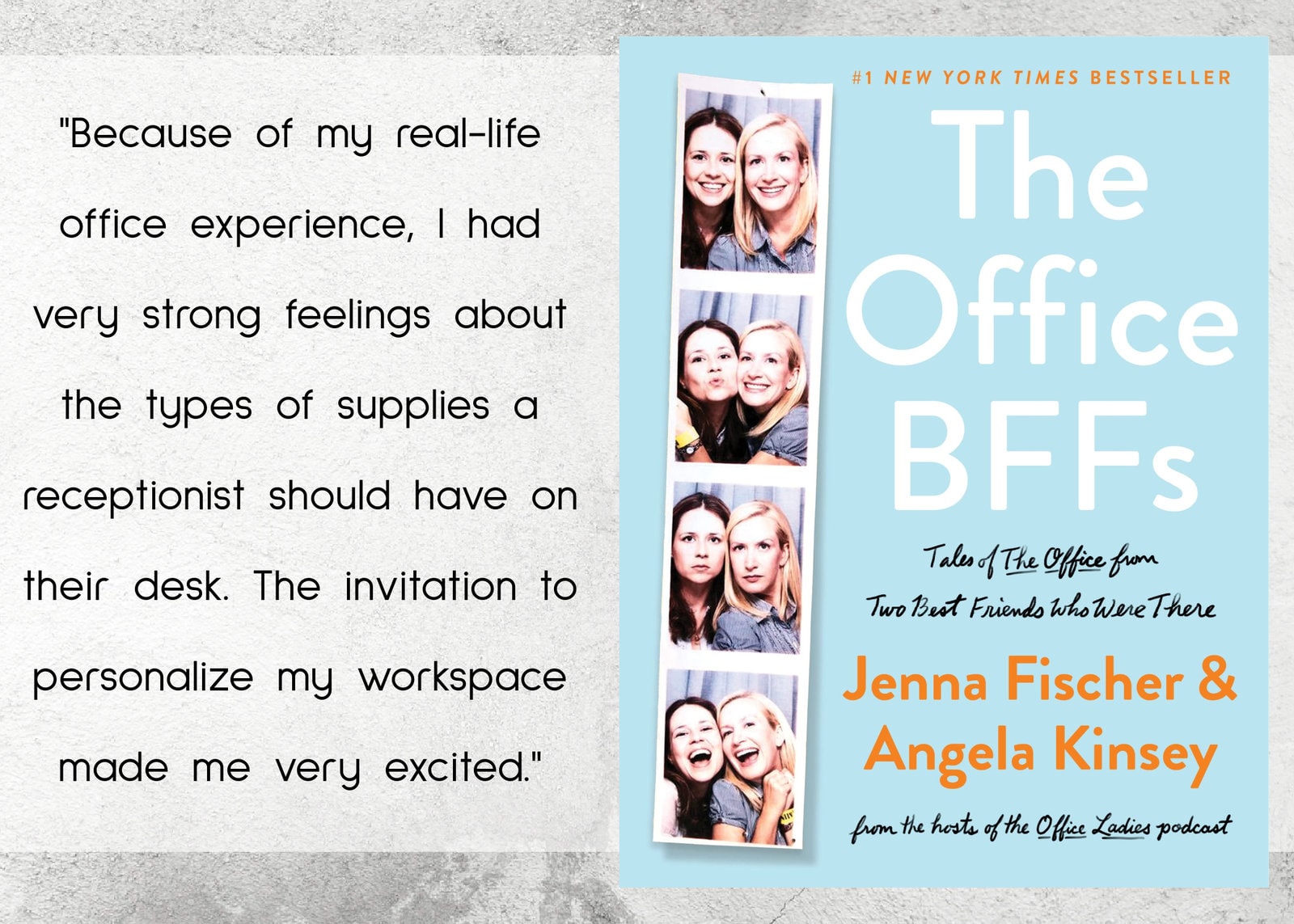
Glory in the Ordinary: Why Your Work in the Home Matters to God, by Courtney Reissig: As a stay-at-home mom I often feel as though the work I do is entirely useless: I “work” all day long but have little to show for it, and the mundane tasks of parenting and household chores feel insignificant, leaving ME feeling insignificant and questioning my decision to stay home. In Glory in the Ordinary, fellow SAHM (and twin mom!) Courtney Reissig acknowledges the very real perception of many at-home parents that our work is meaningless, but she dispels these beliefs, showing how our simple home tasks contribute to society and to God’s Kingdom as we bring order from chaos and love those around us without the added burdens of carrying an official “job.”
This book has a very niche audience and won’t be appreciated (or needed) by every reader, but it was what I needed to read in this life stage as I have felt discouraged lately in my at-home role. I was intrigued by the history lessons that explore at-home work of past generations and how it has changed (and with those changes, how expectations of women and especially mothers have expanded, often unrealistically). I was thankful for the acknowledgment of various temptations for those of us who stay home—either to find too much of our identity in our parenthood and become “workaholics” or to neglect important home tasks as we overindulge our own desires for leisure and relaxation. I also really loved the reminders to use the time we save from not going to a job to invest in our families and communities. My favorite sections of the book discussed guilt and how it is often driven by our desire to look good to others and not an altruistic desire to please God—ouch! (But definitely something I needed to hear.) It was helpful to have Reissig hold my hand in identifying the source of guilt and moving forward.
This book was the motivational talk I needed to stand strong in the hard but important role of stay-at-home-mom. I am grateful for the opportunity I have to be home with my kids and am thankful for solidarity and encouragement from other moms in the trenches.
My Rating: 4 Stars // Book Format: Audiobook.
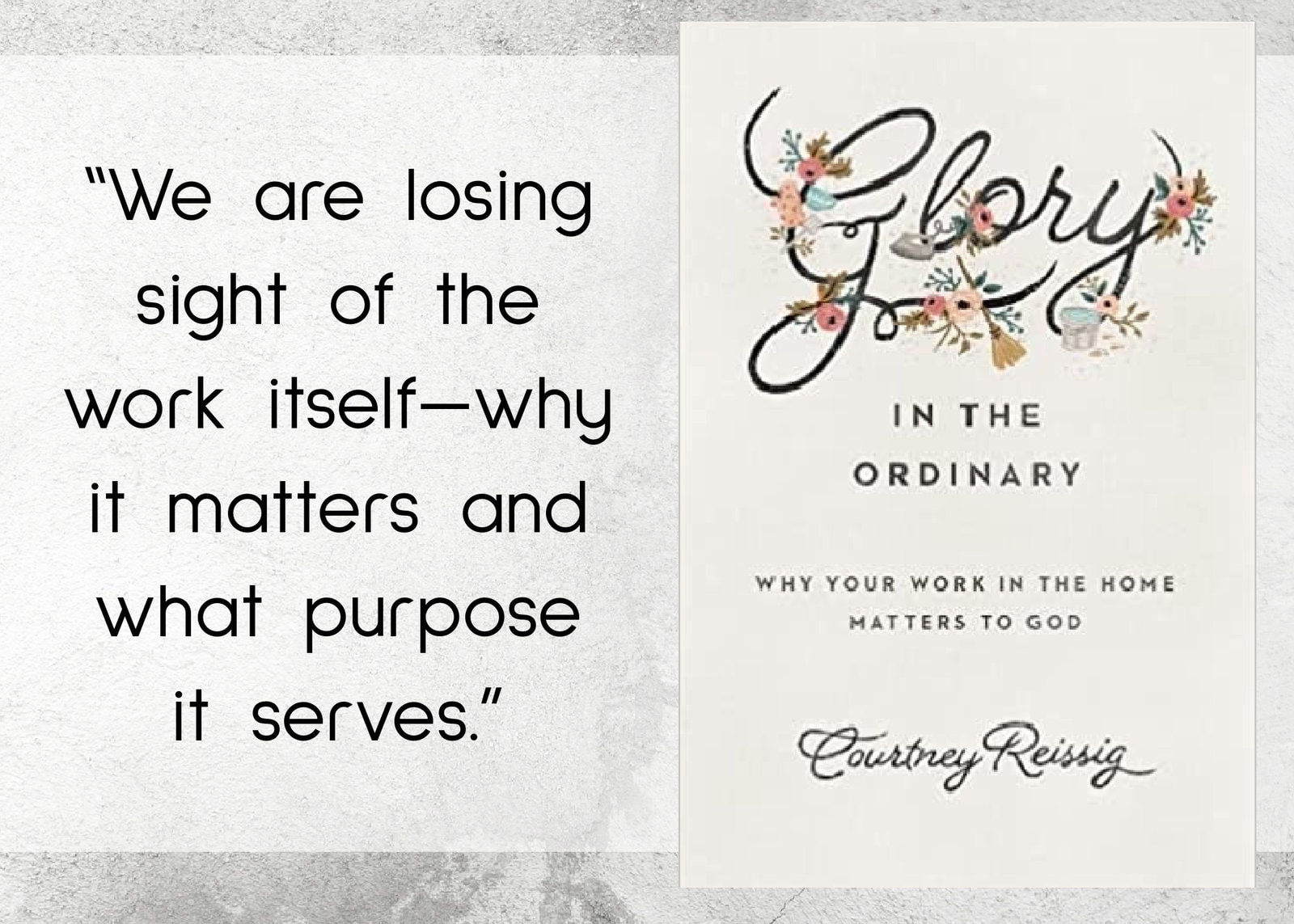
FICTION
Book Lovers, by Emily Henry: Nora Stephens (whose name is a nod to Nora Ephron) is a cutthroat literary agent living in New York. She excels in her work, with her commitment to her clients landing slightly above her obsession with books but below her loyalty to her cherished younger sister, Libby. Lately, though, Nora and Libby have been drifting apart, so when Libby proposes the two of them take a much-needed girls trip to Sunshine Falls, North Carolina, Nora agrees.
During their month in the small town (which was the setting of a shared favorite novel), Libby has plans for Nora to meet and fall in love with a local country boy, prompting the type of transformation Nora only reads about in books. Instead, Nora keeps running into Charlie Lastra, the crusty editor who was Nora’s nemesis back in New York. Charlie and Nora are far too alike, far too Type A, and far too professional for anything to happen between them. But the chemistry between them cannot be denied, and when the two are forced to work together on a bookish project, the headstrong anti-heroes find themselves in an unconventional small town love story of their own.
I wasn’t the biggest fan of Emily Henry’s previous two books, but the readerly themes of this one—combined with the undeniable hype—lured me in, and I’m so happy I gave Book Lovers a chance. The book scratched the “breezy read” itch I was hoping it would, and offered much more depth than I’d expected: the story explores trauma, loss, grief, and parent/child dynamics, and in addition to a complicated but satisfying love story, we are offered a beautiful sisters story. All of this, plus a number of other alluring tropes—among them a quirky small town, a flailing book store in need of rescue, a brooding love interest, and an unconventional heroine who finds love in the least likely of places.
The sparkling banter was a true standout of this novel: the back-and-forth between Nora and Charlie literally had me laughing out loud (not something I often do while I read); their dialogue is not at all realistic, but it is how I WISH I could converse with others, and I loved it! I also enjoyed the insiders’ look into the publishing world as seen through the eyes of an editor and literary agent. Henry ties a number of books (both actual and fictional) in to this story, and I was fascinated by the ins and outs of the book world that we see through our protagonists’ experiences. And of course I loved all the story-related observations and metaphors, plus the examination of the types of stories we enjoy, how we engage with them, and what this says about us. Emily Henry knew her book loving audience when she penned this novel, recognizing what we all wanted from this book and offering it to us on a lovely platter.
This open door romance was steamier than I prefer, though most bedroom scenes are contained and easily skimmed. There is also a lot more swearing than I care for. And I will admit that I had a hard time buying into Nora and Charlie as enemies, nor could I see their relationship as having hurdles to cross. Even with these drawbacks, this was a fun, smart, and emotionally resonant read that will be enjoyed by a wide range of readers.
My Rating: 4.25 Stars // Book Format: Print
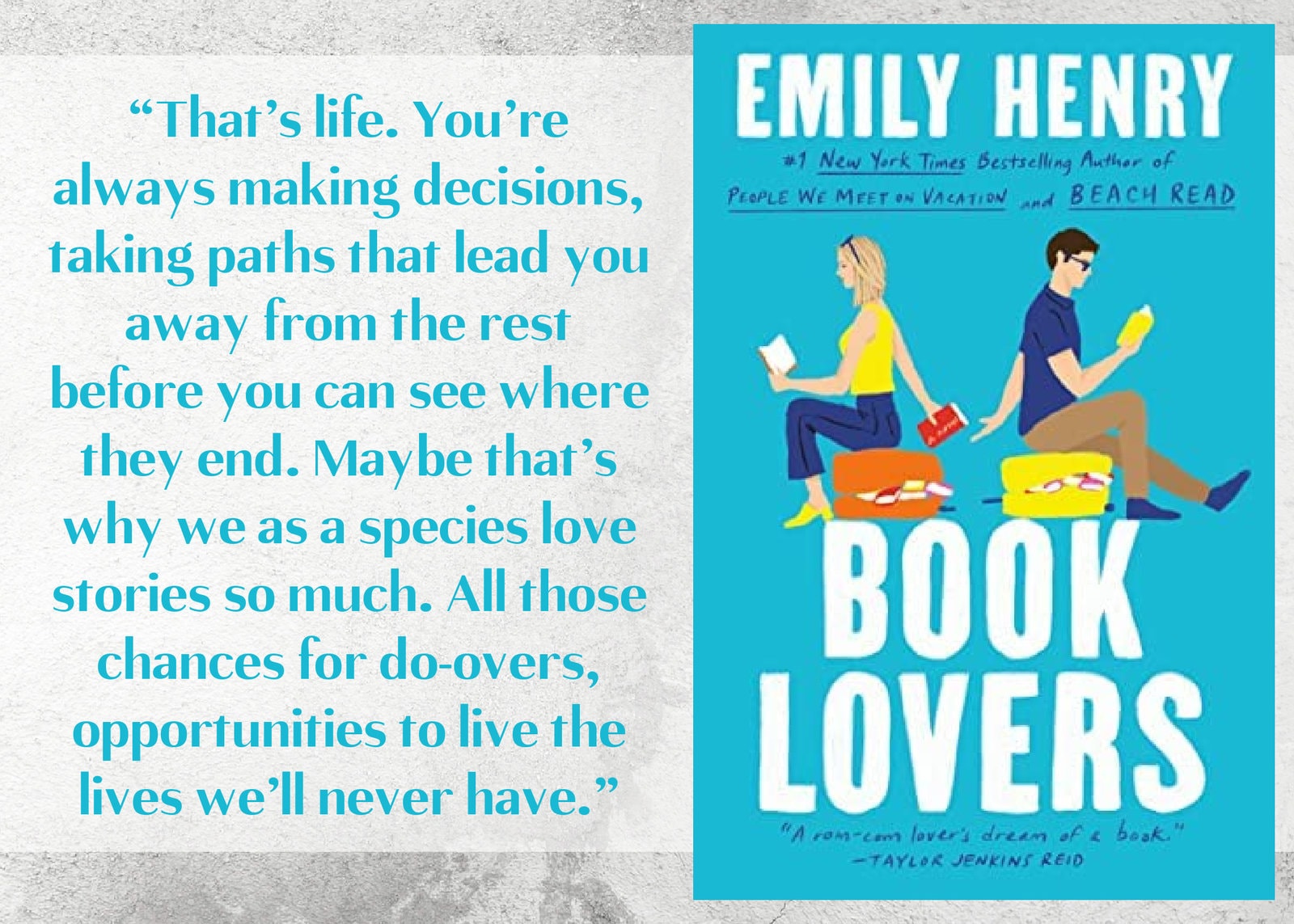
The Absent Author, by Ron Roy: Disappointment turns to concern for three amateur sleuths when their favorite author fails to turn up at the local bookstore for an a much-anticipated book signing. Dink, Josh, and Rose quickly become convinced that Wallis Wallace was kidnapped and they follow the clues to discover where Wallace has gone!
We are always on the lookout for new series that Charleston will enjoy and I was so pleased that this one was a huge hit (I heard gasps of excitement from the backseat of the car where he was reading this, and as soon as he finished he told me it was the best mystery EVER and insisted I read it too). The story is a simple but fun mystery with easy-to-follow (but not overly obvious) clues leading up to the big reveal. Both Charleston and I were hoping for a little more character development with our amateur sleuths, but I have a feeling we will get that as the series unfolds. As for the kidnaping caper itself, we were both engaged and surprised by the ending.
Without giving too much away, I’ll note that gender and identity play a part in the mystery here. This contributes nicely to the story but I can’t help but think this might not have gotten printed in today’s heightened climate around such issues (which is a shame). I liked the themes of subverted expectations and the fact that our sleuths were smart but respectful in working alongside adults to solve the case.
My Rating: 3.75 Stars // Book Format: Print
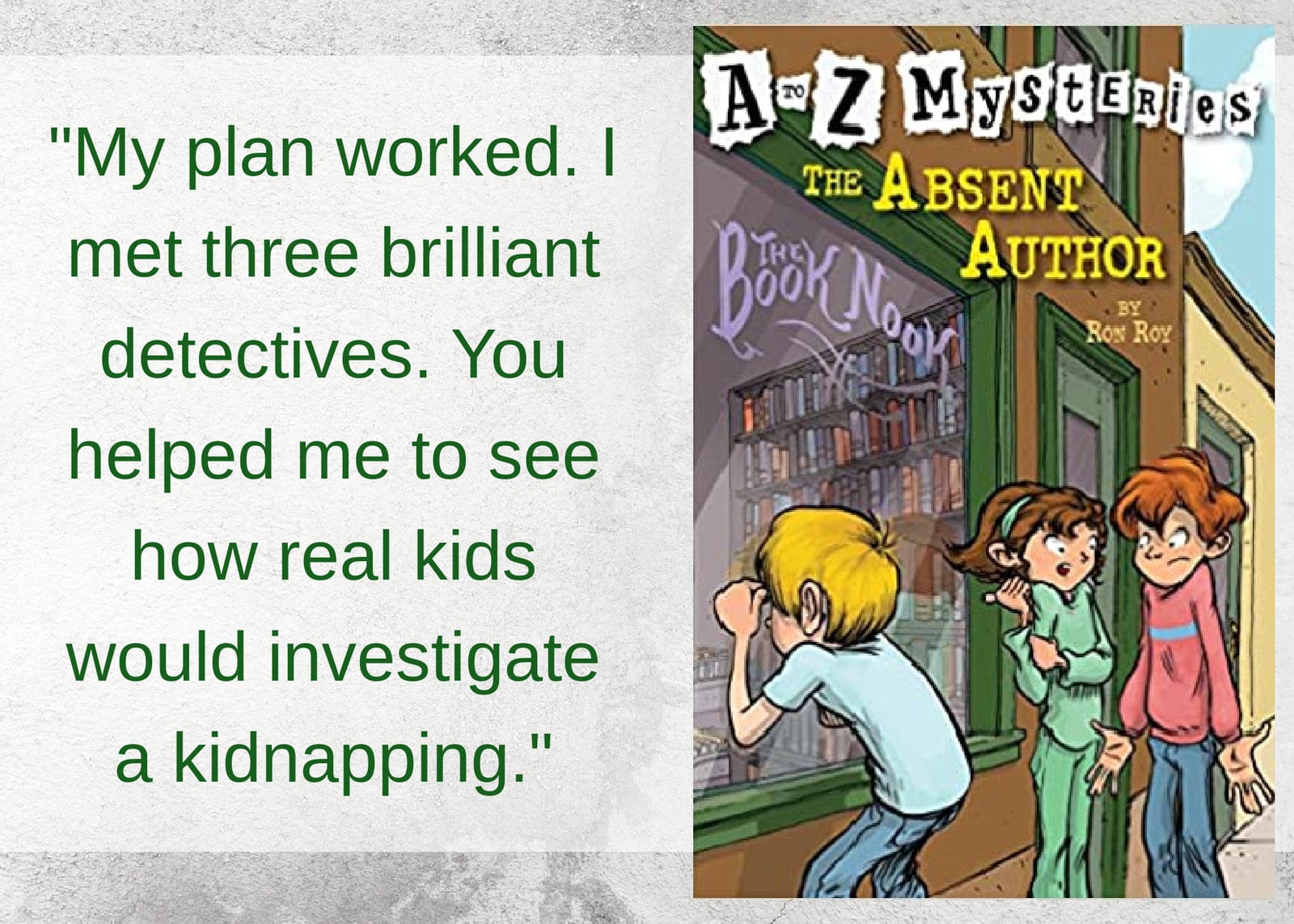
I Must Betray You, by Ruta Sepetys: At the end of 1989, communist regimes are crumbling across the European continent, yet Romania still lies under the tyrannical dictatorship of Nicolae Ceaușescu, who governs through isolation and fear. The brutal living conditions under which Romanians are forced to reside are largely unknown to the outside world, but they are a reality for 17-year-old Cristian Fluorescu, who can hardly fathom the freedoms and privileges he observes in his neighbor’s bootlegged copies of American movies.
When Cristian is blackmailed by the secret police to become an informer, he is left with no choice but to betray his friends and family if he hopes to keep them alive. But as he begins informing upon those around him, Cristian discovers another path: he has a unique opportunity to expose the regime’s atrocities and pave the way for freedom. . . but at what cost?
This book FLOORED me! I was alive in 1989, have distinct memories of hearing about the collapse of the Soviet Union on the news, yet I had no idea of the brutality and harsh conditions experienced by Romanians at this time. While reading, I continually had to remind myself that this was historical fiction (heavy emphasis on the historical part, as it is quite well researched) and not dystopian sci-fi, because aspects of the story seem too fantastic to have truly occurred, especially so recently.
Sepetys offers a powerful glimpse at life under the communist regime: from the lack of all luxuries and even most necessities, to the untruthful propaganda perpetuated by the party, and most of all, the constant state of terror and distrust experienced by citizens who were given no freedoms, no hope, no voice. It seems that theoretical communism has been glamorized in recent years, but this book is a stark reminder of what true communism can look like. I love that this book, with these central themes, is geared towards a YA audience who is likely even less familiar with this time period than I was and can gain so much perspective through stories such as this one.
While the window into the Romanian communist regime is what will stay with me after reading this novel, the story itself is also remarkable. Although I struggled to connect with the character of Cristian, I admired his courage, resonated with his internal struggles, and had so much compassion for this young man who desires to pursue truth and stand up for what is right, but is unsure of what truth and right really are, let alone how to identify them and who to trust along the journey. Cristian’s poetry and the romantic subplot added humanity to this story that might otherwise have felt too inaccessible, and the twists and turns of Cristian’s undercover experience caught me by surprise more than once.
This is a hard but heartfelt story that sets the stage for some powerful and important conversations among readers, especially adolescent ones. This is a book that is “important” enough to find its way onto a middle- or high school curriculum, but engaging enough for teens to pick up on their own.
My Rating: 4.75 Stars // Book Format: Print
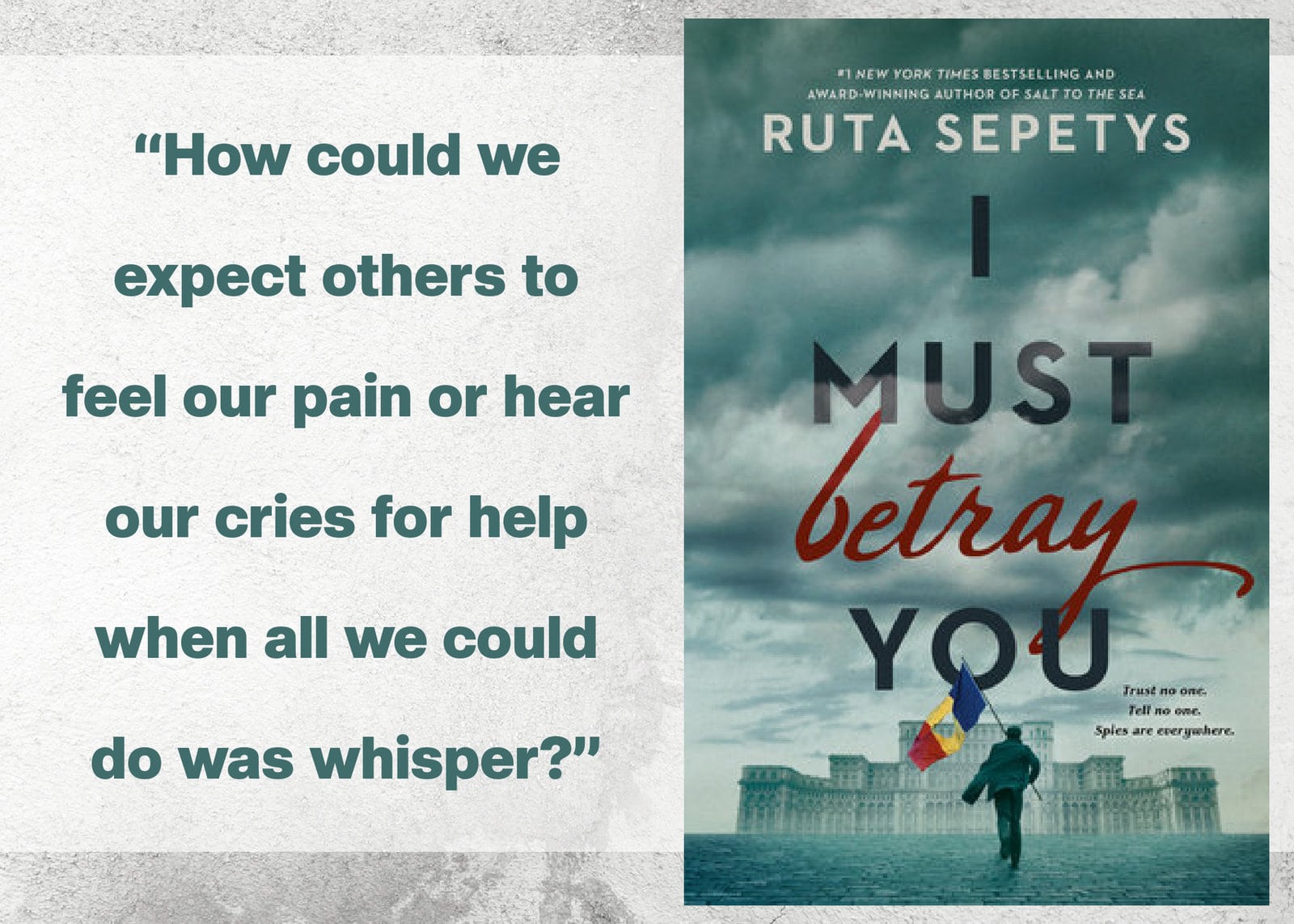
The Cartographers, by Peng Shepherd: Nell Young is a map enthusiast who, as the daughter of two famed cartographers, has lived and breathed maps her whole life. But just as Nell’s professional career in the cartography field was beginning, a disastrous incident involving a cheap gas station map led to a falling out with her father and her own humiliation within the mapmaking community.
Now it’s been almost a decade since Nell has seen her father, but when Dr. Young is found dead in his office at the New York Public Library, Nell is called to the scene and is shocked to discover he is in possession of the very map that led to their severed relationship. The discovery leads Nell into an investigation of the map’s origins and mysterious history, and soon Nell finds herself at the center of a deadly map hunt with roots to her own past. At the center of the mystery is a group who called themselves The Cartographers and whose friendships and careers were torn apart by secrets and betrayals no map could help them navigate.
As an amateur map enthusiast myself, I enjoyed reading with Charleston earlier this year and this book felt a little like the adult version of that ode to cartography. With its fantastical storyline involving hidden maps, phantom settlements, long-lost family members, and haunting flashbacks, this novel has all the makings of a riveting work of speculative fiction. Couched within the twisty story of toxic friendship and industry secrets is an intriguing exploration of the nature and purpose of maps—how they are made and how they shape those who use them.
Unfortunately, I enjoyed these themes more than the story itself, which is too long and convoluted and involves far too many plot holes. There are too many characters who bled together and whose motives I couldn’t understand, let alone believe. I wanted to love this, and it has some strong moments, but I struggled to get through it. I do think it would make an excellent movie!
My Rating: 3.5 Stars (Rounded down to 3 Stars on Goodreads) // Book Format: Kindle
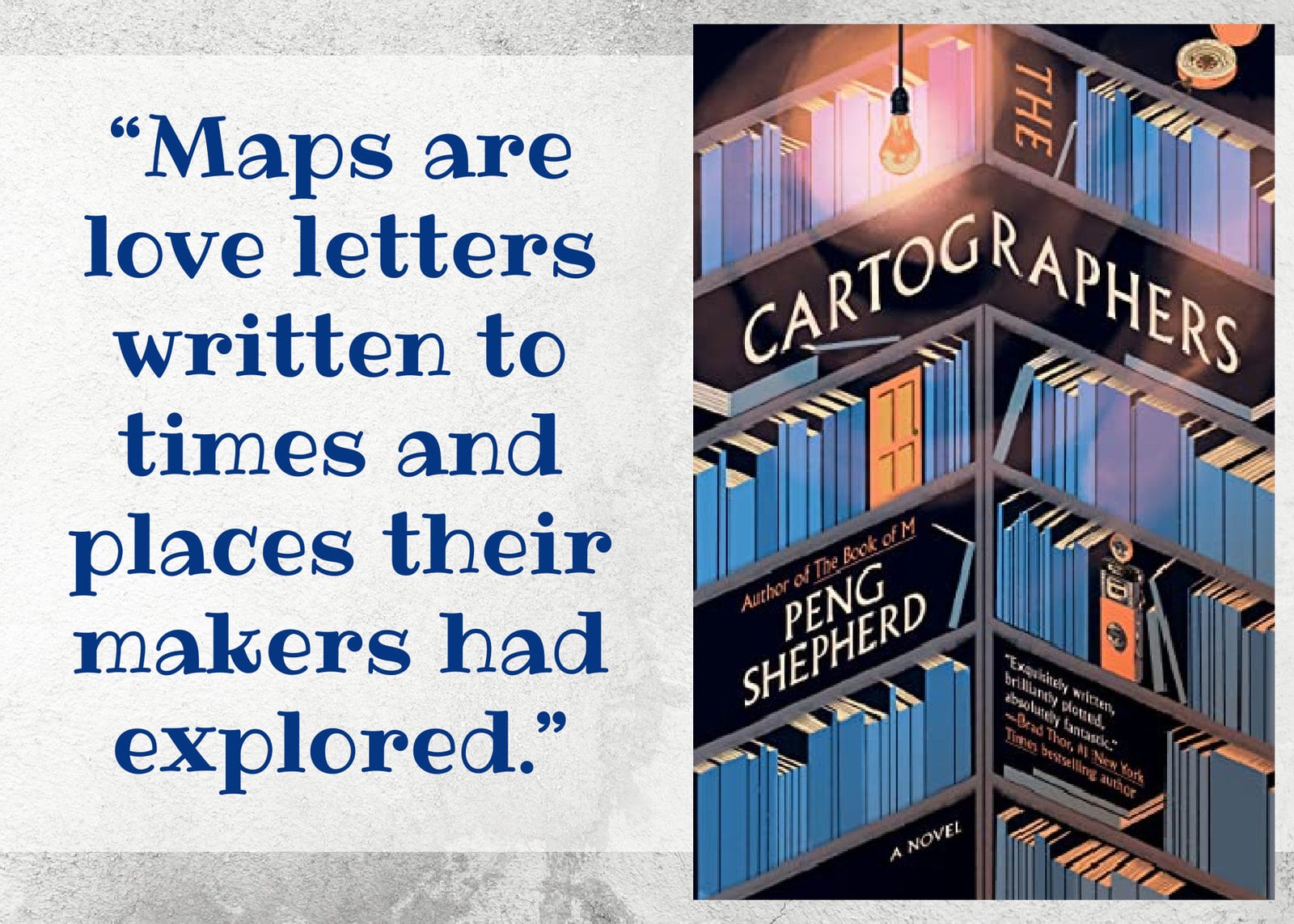
Have you read any of these titles? What did you think? And more importantly. . . do you have any MUST READ titles you think might help me get past this current reading slump? I’d love to hear your recomendations!
I agree with you about The Cartographers. Great premise, i was so excited, but it just didn’t deliver. To me it was The Davinci Code meets Brigadoon. Amateur. Just didn’t work, and I felt cheated. I didn’t understand, for one thing, why an argument with her father led to her being ostracized by the whole map making community, even though he was a bigshot. So many things didn’t add up, but it’s been a while now.
I had the same impression of Cartographers. I also felt that if you have a librarian as the main character, they should be doing some active research instead of just listening to parents’ friends recount memories.
Hey Kendra … Cartographers was fascinating … just the right mix of fantastical and reality. Good stuff. And I really appreciated your thoughtful discussion of Celebrities for Jesus. Lots to consider there …
I loved I Must Betray You! And felt meh about Cartographers.